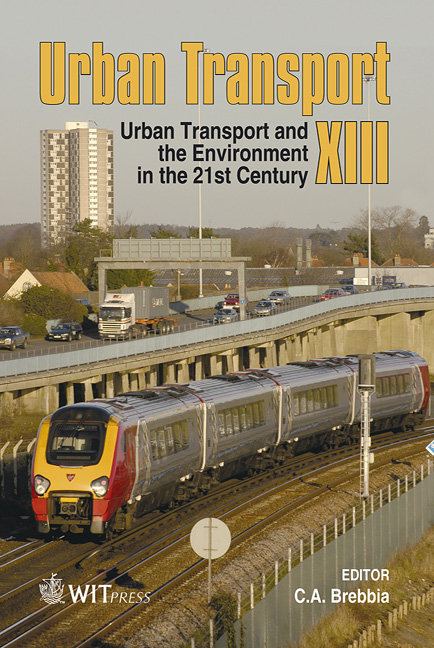An Evaluation Of The World Bank’s Preparedness To Meet Future Urban Transport Challenges
Price
Free (open access)
Transaction
Volume
96
Pages
10
Published
2007
Size
496 kb
Paper DOI
10.2495/UT070601
Copyright
WIT Press
Author(s)
P. N. W. Freeman
Abstract
During 2006 an evaluation was undertaken by the World Bank Independent Evaluation Group (IEG) of the effectiveness of the Bank’s global support to the transport sector during the last ten years. This paper focuses specifically on the results of the urban transport component of the study. Troubling issues include environmental damage, energy efficiency, and implications for climate change, traffic congestion, and transport safety, as well as questions relating to affordability and the logistical challenges of effective multimodal transportation. The World Bank has made significant progress in encouraging private sector contracting, especially of maintenance activities, but more modest success with institution building and ensuring infrastructure funding sustainability. However, the time has come to reassess priorities as a new more urban related agenda unfolds. Keywords: evaluation, urban transport, developing countries, traffic congestion, urbanization, environmental damage, air pollution. 1 Introduction Over the next 35 years 2.5 billion people will be added to the current world population of 6.3 billion. In developing countries, much of this growth will be urban and it is expected that there will be 358 cities exceeding 1 million inhabitants by 2015. This expansion, coupled with the impact of ongoing globalization and trade liberalization, is expected to significantly accelerate the demand for transportation. The motor industry, for example, may have reached maturity in the developed markets of North America, Europe, and Japan, but globally it is poised for a huge expansion, led by the motorization of China and India. Within a few years, China
Keywords
evaluation, urban transport, developing countries, traffic congestion, urbanization, environmental damage, air pollution.





